Click on a word which is in blue and bold to read what it means.


Speach of László Bercse during the European Day of Persons with Disabilities 2020.
László Bercse is the Chair of the European Platform of Self-Advocates
and the Vice-President of Inclusion Europe.
László is also the Co-Chair of the Hungarian organisation ÉFOÉSZ.
Inclusion Europe is the European movement of people
with intellectual disabilities and their families.
Inclusion Europe has members in 40 European countries.
Inclusion Europe represents over 20 million citizens.


During the Corona crisis, persons with intellectual disabilities
had to adapt, like everybody else.
Our families had to adapt.
Our service providers had to adapt.
You really have to admire the people with intellectual disabilities,
the family members supporting them, the staff in-services.

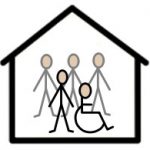
As a self-advocate, I was able to do a lot of tasks.
I was in contact with other self-advocates across Europe.
This was different for many people with
intellectual disabilities in Europe.
Many thousands have faced complete isolation,
especially those segregated in residential care institutions.






The pandemic means losing our support networks.
Not being able to see our family and friends.
Not being able to go to work.
In some countries, people were left without support.
Students with intellectual disabilities were left out of school, online classes were not accessible to them.
It was hard to stay connected and working.
Online meetings or calls are not for all people.
Sometimes, we do not have computers or phones to do it.
Sometimes, we do not have internet connections.
Many people with intellectual disabilities have lost their jobs.
Many of us feel that we were left out.
Our needs were often not considered
when preparing the measures and solutions.
Information was mostly not accessible to us,
provided only in difficult language.
We often could not understand what was going on.
What do we need to do and why?
Persons living in institutions were not able to
get out for a long time.
Many still aren’t.
Many people with intellectual disabilities were denied proper health care when sick with Covid.
Many people with intellectual disabilities died
from the Coronavirus
In England, they died at 3 times higher rate
than the general population.


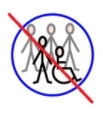
How is it in other countries?
Especially where there are a lot of people
in residential care institutions?
We don’t know,
because other countries do not report this information!
It is important to understand that the bad things happening during the pandemic are not new to us.
We already face segregation, isolation, lack of health care…
The pandemic made existing problems,
discrimination and segregation worse.
It made this easier to see – I hope also for the governments.


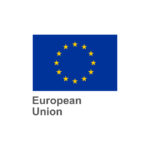


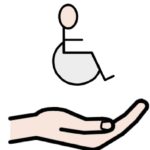
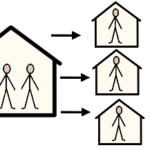
What needs to be done now?
Governments must learn from these experiences.
They must listen to us when preparing the measures.
Our lives have the same value as everyone else’s.
Governments and the European Union must investigate
properly the things that happened to people with intellectual disabilities.
How many died?
How many died because they did not receive
proper medical care?
Governments must provide easy-to-understand information.
Some have been doing that,
others can learn from their example.
The European Union and national money
for economic recovery must reach people
with intellectual disabilities and families.
The money must go into support,
especially in inclusive education
and in employment for people with intellectual disabilities.
The money must go into community-based services.
People with intellectual disabilities must be able
to move out of the segregated residential care institutions.
More on the European Day of Persons with Disabilities 2020
Download László’s speech in:
Commissioner Helena Dalli’s speech at the conference.
Download the COVID report 2020 by Inclusion Europe.
Include, special issue
We prepare a special issue of our Include newsletter for the conference. Download it here:
European Disability Strategy
Evaluation of the current strategy and expectations of the next one were also on the agenda of the conference. Read about the European Disability Strategy and our input into it.





